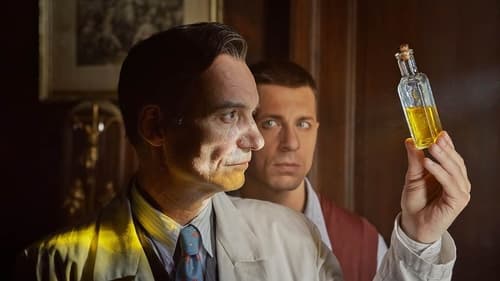
Editor
About Ela a rebellious artist struggling with the deep gray everyday life of Poland in the 1980's, including family problems and personal demons originating in bipolar disorder.

Editor
20세기 초 체코슬로바키아, 약초로 사람을 치유하는 기적 같은 의술을 가진 얀 미콜라섹. 공인 약초 전문가로 불리는 그는 타고난 재능과 뛰어난 실력으로 곧 유명해지고, 하루에도 수백 명의 환자들을 치료하며 부와 명성을 얻게 된다. 얼마 후, 정권이 교체되고 온갖 훼방으로 모든 걸 잃을 위기에 놓인 그는 수많은 난관을 겪게 되는데…

Editor
The devil's magic quill keeps a tight record of sins. But when this precious artifact is stolen, a demon must find a way to make things right again.

Editor
두셰이코는 은퇴한 괴짜 건축기사이자 점성술사이며 채식주의자로, 체코와 폴란드 경계에 위치한 작은 산골 마을에 살고 있다. 그러던 어느 날 그녀는 밀렵꾼으로 활동하던 이웃의 시체를 발견하게 되는데, 이 불가사의한 죽음을 해결할 단서라고는 집 주변에 남겨진 노루 발자국뿐이다. 시간이 흐르고 소름 끼치는 살인이 몇 건 더 발생한다. 희생자들은 모두 지역 상류층에 속하는 사냥꾼이다. 아무리 경찰 조사를 진행해도 아무런 소득이 없자, 두셰이코는 이 모든 살인이 야생 동물의 짓이라는 가설을 세우게 된다.

Editor
“The fact that I’m playing myself doesn’t mean that it’s me.” Four old schoolmates, today well-known Czech actors (Pavel Liška, Tomáš Matonoha, Josef Polášek and Marek Daniel), decide to make a movie together. Their ambitious colleague Jan Budař takes up directing duties and financing has arrived from Poland. What started out pleasantly enough, however, soon goes awry. Liška’s pronunciation difficulties, Daniel’s alter ego Havlát, and Matonoha’s financial machinations turn the shoot into a fight for survival. More than just a film about friendship and the absurdity of actors’ lives, director Marek Najbrt gives us a witty meditation on reality and illusion, and a unique take on the reality film genre. One of Pavel Liška’s on-set comments (“I didn’t know if I should act as if I were acting, or act as if I weren’t acting, or just not act at all”) illustrates the provocative nature of Najbrt’s subversive, quasi-documentary game.

Editor

Editor
Ice hockey is a Czech national obsession, and the country's victory over Russia in the 1969 World Championships, the year following the Soviet invasion, is a celebrated moment in its history. In Marek Najbrt's black comedy, the heroic exploits take place only on a black and white tv screen as a group of representative misfits gather and watch the game in a desolate village on the Czech border. While consisting of recognisable types, Najbrt's bleak portrait reveals a world of alcoholism, debt, racism, bigotry, and infidelity that trails behind the dreams of nationalism and bears little resemblance to the fantasies of the new consumerism. A clever and multi-levelled film, it provides a sharp antidote to the reconciliatory charms of the conventional Czech comedy.

Editor
Sympathetically modern for its time - it was 1937 - is the approach of a young factory director in the middle of a growing Bata-style town in the picturesque foothills of the majestic Tatra Mountains. But make no mistake, the protagonist is his wife Helena (Eliška Křenková). However, the determined gaze of the aspiring doctor, who is about to give birth soon, into her dream family future is suddenly overshadowed by the discovery of a dead body of a newborn baby in the courtyard of the pulsating factory. Helen's innate empathy, amplified by another condition, is not satisfied with a conspicuously quick solution to the mystery. A gripping detective drama with a progressive and deeply human take on a controversial subject not only just before the unsuspected war but decades later.






